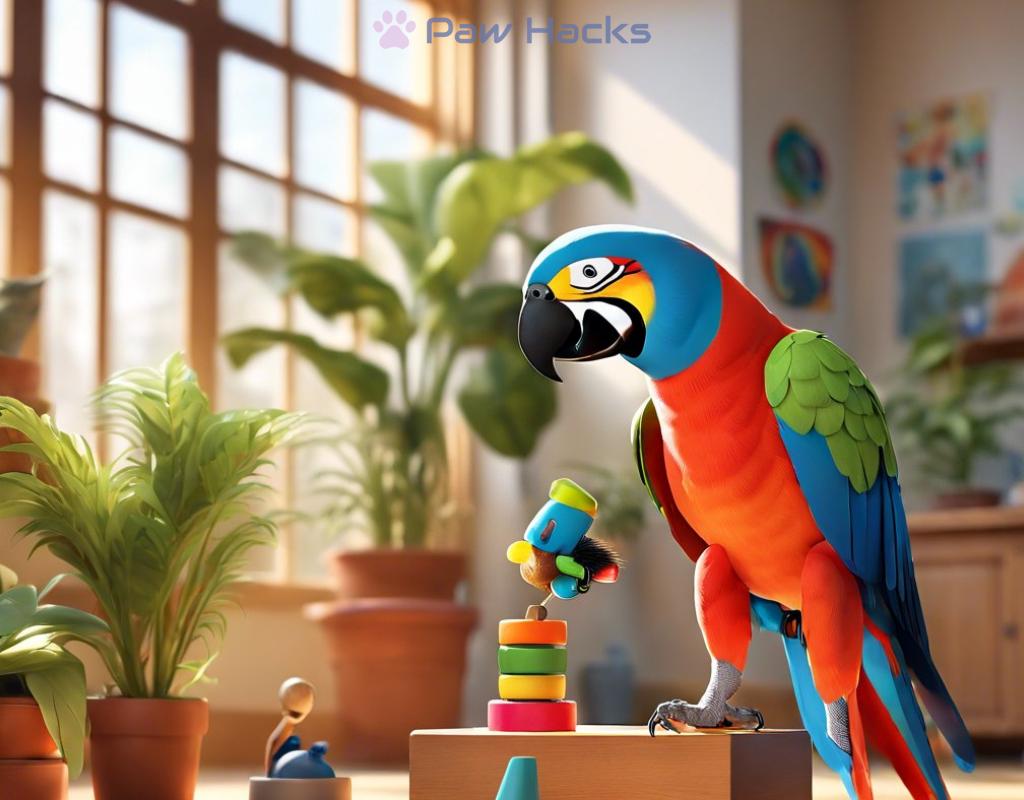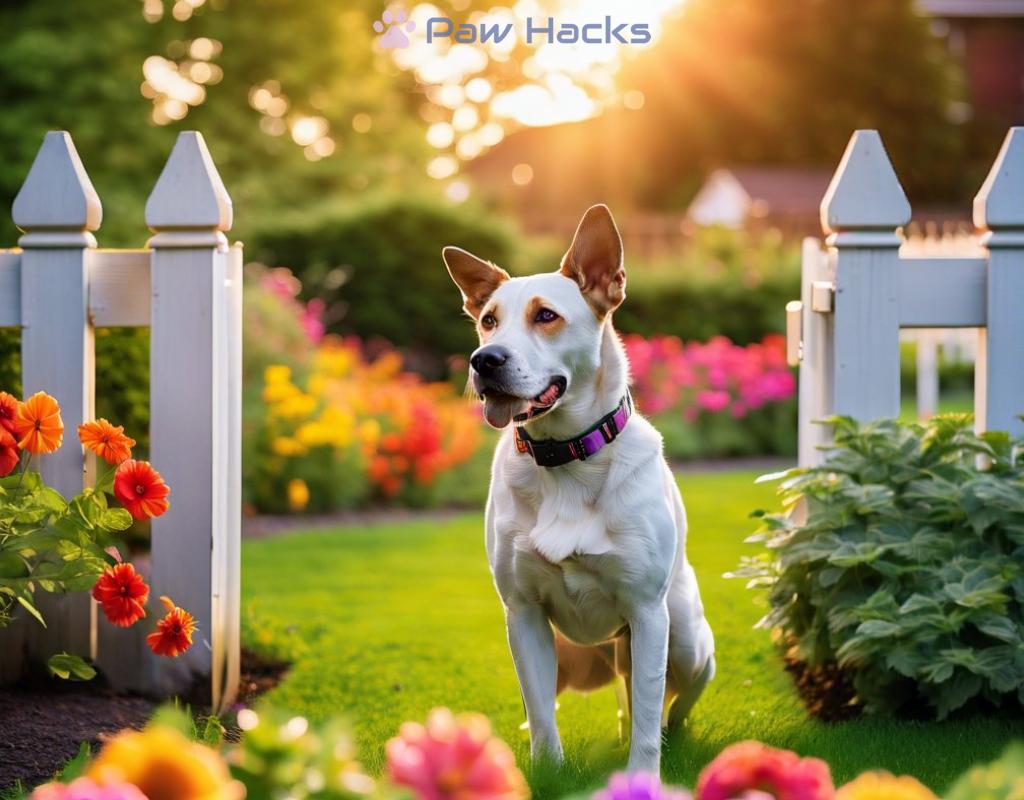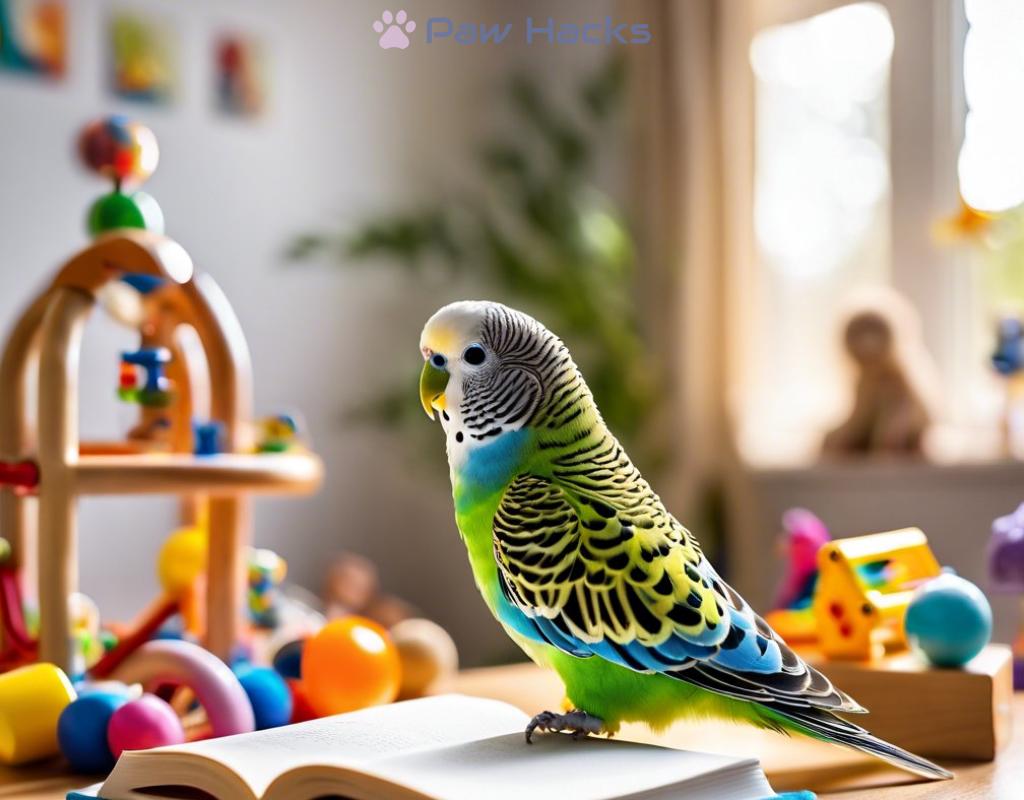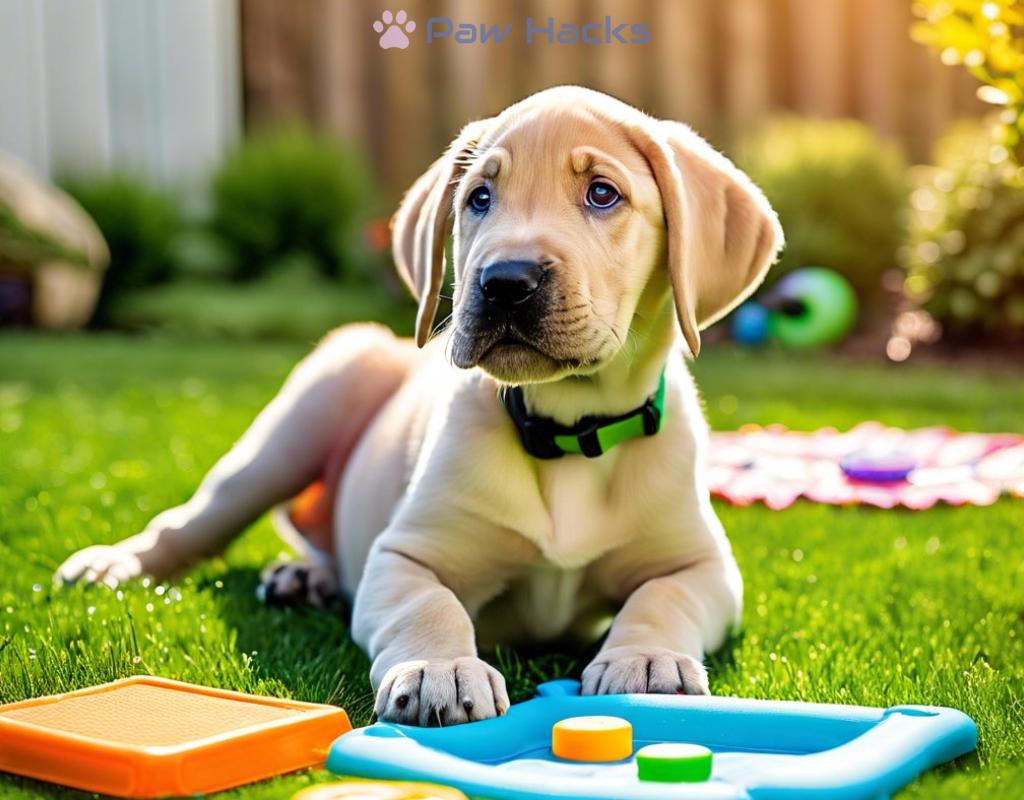Teaching Parrots to Retrieve Objects
The Joy of Teaching: Why Retrieving Objects is Fun for Parrots
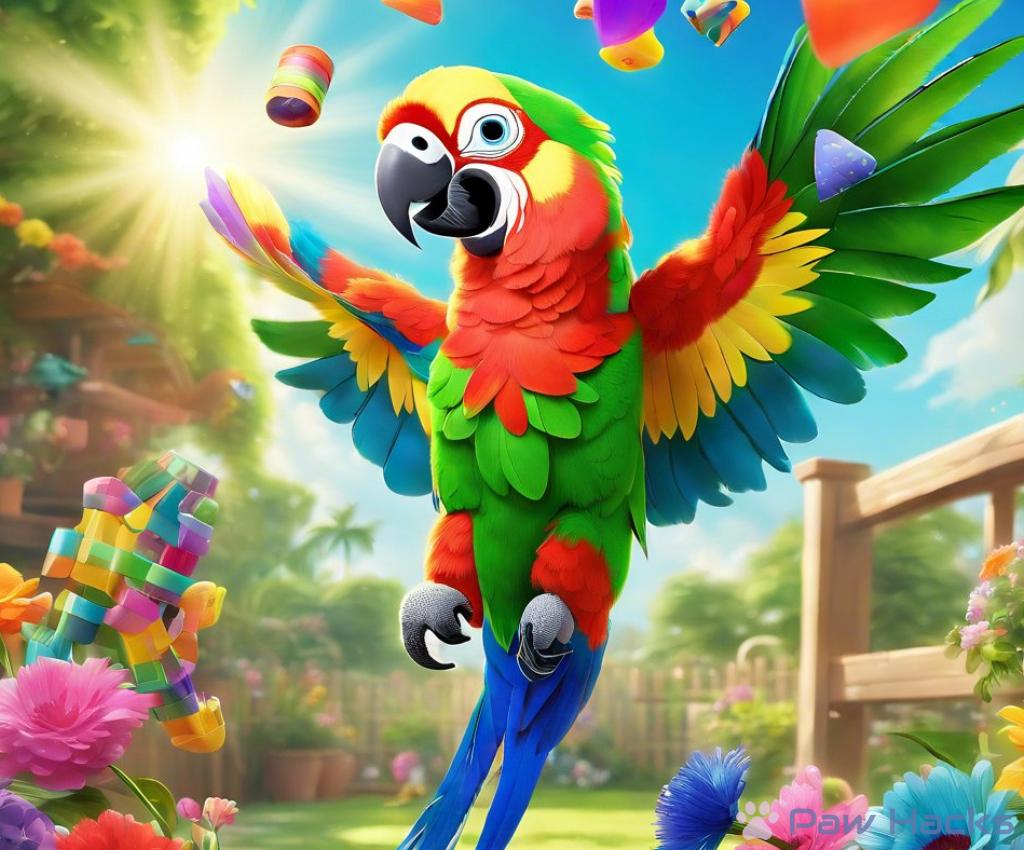
Unlocking the Fun: Understanding Your Parrot’s Playful Nature
Parrots are incredibly intelligent creatures, often displaying a playful spirit that captivates bird lovers around the world. Teaching your parrot to retrieve objects not only taps into this playful nature but also strengthens your bond with them. Engaging in retrieval activities can provide mental stimulation for your feathered friend, making it an enjoyable experience for both the parrot and the owner.
As you embark on this teaching journey, it’s essential to recognize that parrots thrive on interaction and challenges. By introducing them to retrieval games, you provide them a chance to exercise their natural instincts while having fun.
The Benefits of Retrieval Games for Your Feathered Friends
Retrieval games can be a delightful experience for parrots, offering a range of benefits that enhance their well-being. These games not only keep them physically active but also mentally stimulated. Engaging in retrieval activities allows your parrot to use their problem-solving skills, which is crucial for their cognitive development.
Here’s a list of benefits associated with teaching your parrot to retrieve objects:
- Physical Exercise: Keeps them active and healthy.
- Bonding Time: Strengthens your relationship with your parrot.
- Mental Stimulation: Challenges their mind and encourages learning.
- Behavior Management: Redirects negative behaviors into positive activities.
- Fun and Entertainment: Provides enjoyment for both you and your parrot.
Mastering the Art of Retrieval: Tips for Success
Teaching your parrot to retrieve objects can be a rewarding experience, but it does require patience and persistence. Here are some practical tips to help you succeed in this joyful endeavor:
- Start Small: Begin with easy-to-retrieve objects to build confidence.
- Use Positive Reinforcement: Reward your parrot with treats or praise when they successfully retrieve an item.
- Be Consistent: Regular practice will help your parrot learn more effectively.
- Make it Fun: Keep the atmosphere light and enjoyable to maintain your parrot’s interest.
- Be Patient: Every parrot learns at their own pace. Celebrate their progress!
By following these tips, you’ll create an enriching environment that encourages your parrot to enjoy the process of learning and retrieving.
Step-by-Step Guide: How to Train Your Parrot to Retrieve with Ease
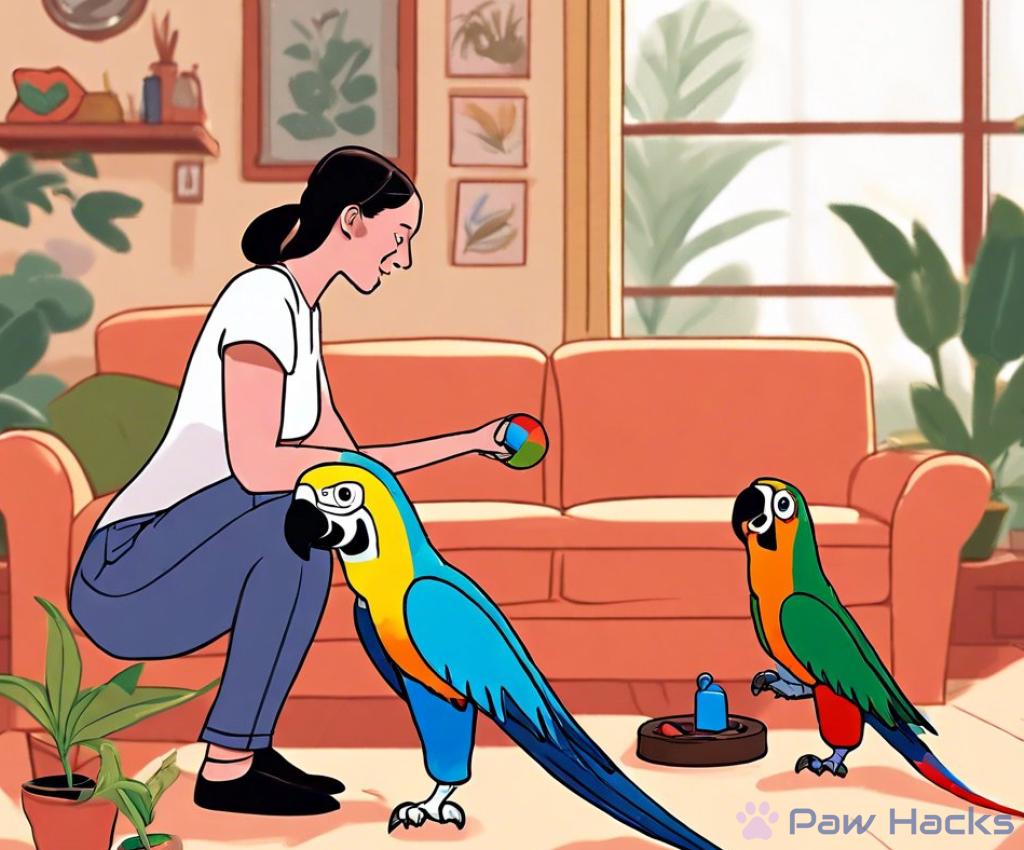
Setting the Stage for Success
Before diving into training, creating the right environment is crucial. Ensure that you have a quiet space with minimal distractions. This will help your parrot focus on the task at hand. Gather a few lightweight and colorful objects that will pique your parrot’s interest; items like small balls or soft toys are ideal. By establishing an engaging training atmosphere, you set your parrot up for success in the retrieval process.
Breaking It Down: The Training Process
Training your parrot to retrieve can be broken down into manageable steps. Each step builds upon the previous one, making it easier for your parrot to learn and master the task. Here’s a detailed approach to ensure a smooth training experience:
- Step 1: Introduce the Object – Begin by letting your parrot examine the object. Encourage curiosity by gently rolling it towards them or placing it near their perch. Use a cheerful tone to express excitement.
- Step 2: Encourage Interaction – Use your hand to gently encourage your parrot to pick up the object. If they show interest or touch it with their beak, offer praise or a small treat. This reinforces positive behavior.
- Step 3: Teach the Retrieve Command – Introduce a verbal cue like “fetch” or “bring it here.” Use the command consistently every time your parrot picks up the object. Reinforcement is key, so reward them immediately.
- Step 4: Practice the Toss – Once your parrot is comfortable picking up the object, toss it a short distance. Use the retrieve command as they chase after it. Be sure to reward them for bringing it back.
- Step 5: Gradually Increase Difficulty – As your parrot becomes more confident, increase the distance of your tosses and introduce different objects. Keep the sessions short and enjoyable to maintain their interest.
Tracking Progress: Keep It Fun and Engaging
Monitoring your parrot’s progress is essential. Record each training session to track achievements and areas needing improvement. Use a simple table to note the date, object used, and your parrot’s response. This will help you identify patterns and ensure that the training remains engaging.
| Date | Object Used | Response |
|---|---|---|
| 01/01/2023 | Soft Ball | Picked Up |
| 01/02/2023 | Colorful Toy | Returned |
By keeping sessions light-hearted and rewarding, you enhance your parrot’s learning experience. Remember, patience is vital. Celebrate small victories along the way, and enjoy the journey of training your parrot to retrieve!
Choosing the Right Objects: What Works Best for Parrots?
When it comes to teaching your parrot to retrieve objects, the choice of items you use can significantly influence their enthusiasm and success. Selecting the right objects ensures that your parrot remains engaged and motivated throughout the training process. With so many options available, how do you determine which items will capture your parrot’s interest and enhance their learning experience?
Characteristics of Ideal Retrieval Objects
Not all objects are created equal when it comes to training your parrot. Here are some features to consider that can help you choose the perfect retrieval items:
- Lightweight: Choose objects that are easy for your parrot to lift and carry. Heavy items can discourage them from participating in retrieval activities.
- Colorful and Attractive: Brightly colored objects tend to attract a parrot’s attention. Their vibrant hues can stimulate interest and encourage interaction.
- Safe Materials: Ensure that the items are made from non-toxic materials to avoid any health risks. Avoid small parts that can be swallowed or pose a choking hazard.
Types of Objects to Consider
With the right characteristics in mind, here’s a list of popular object types that can work wonders for your parrot’s retrieval training:
- Soft Balls: These are lightweight and easy to carry, making them perfect for retrieving.
- Small Stuffed Toys: Their texture and size make them appealing and safe for parrots.
- Plastic Rings: These are colorful and can be easily tossed around, encouraging your parrot to chase after them.
- Wooden Blocks: A great option that allows your parrot to chew while participating in retrieval activities.
Experimenting for Success
Remember, every parrot has unique preferences. What excites one parrot may not interest another. Therefore, it’s beneficial to experiment with different objects to discover your parrot’s favorites. Start by introducing a variety of items during training sessions and observe their reactions. This trial-and-error approach will help you refine your selection and keep your training sessions lively and effective.
Ultimately, the right objects can transform your parrot’s retrieval training from a simple task into an exciting game. By taking the time to choose wisely, you’ll enhance their learning experience and strengthen the bond between you and your feathered companion.
Common Challenges: Overcoming Hurdles in Parrot Retrieval Training
Understanding the Roadblocks
While teaching your parrot to retrieve objects can be a joyful endeavor, it is not without its challenges. Many parrot owners face hurdles that can hinder the training process and lead to frustration. Recognizing these roadblocks can pave the way for effective solutions. This section will explore common challenges and provide insights on how to navigate them with patience and creativity.
Motivation and Engagement: Keeping the Spark Alive
One of the most significant challenges in parrot retrieval training is maintaining your bird’s motivation and engagement. Parrots, by nature, have short attention spans and can quickly lose interest if the activities become repetitive or mundane. To combat this, it’s essential to introduce variety in the training sessions. Rotate the objects used for retrieval and incorporate different locations for the training to keep the environment stimulating. Additionally, using high-value rewards, such as their favorite treats, can reignite their enthusiasm and encourage them to participate actively.
Addressing Fear and Hesitation: Building Confidence
Another common issue is a parrot’s fear or hesitation towards new objects. If a parrot is unsure about an item, they may refuse to engage with it altogether. To build their confidence, start by allowing them to explore the object at their own pace. Encourage them with positive reinforcement when they show interest, even if it’s just a small touch with their beak. This gradual introduction helps diminish fear and fosters a sense of familiarity. Moreover, creating a positive association with retrieval can significantly improve their willingness to participate. For instance, after a successful retrieval, shower them with praise and affection to reinforce their bravery.
Monitoring Progress: The Key to Long-Term Success
Tracking your parrot’s progress is crucial in overcoming challenges during training. By keeping a simple log of their responses and improvements, you can identify patterns that indicate what works and what doesn’t. This information is invaluable for adjusting your training methods and ensuring a positive learning experience. Consider maintaining a table that logs dates, objects used, and your parrot’s responses, which will help you visualize their journey and celebrate milestones along the way.
Celebrating Success: How to Reward Your Parrot for Great Fetching Skills
As you nurture your parrot’s fetching skills, celebrating their successes is essential for reinforcing positive behavior. Rewards not only acknowledge their accomplishments but also motivate your feathered friend to continue engaging in retrieval activities. By carefully selecting how you reward your parrot, you can create a fun and exciting atmosphere that fosters learning and strengthens your bond.
Crafting the Perfect Reward System
Establishing a reward system tailored to your parrot’s preferences can lead to more effective training sessions. It’s important to understand that every parrot is unique, and their favorite rewards may vary. Here are some effective methods to consider when rewarding your parrot:
- Treats: Offering special treats, like small pieces of fruit or their favorite seeds, can serve as a powerful incentive. Make sure these treats are healthy and given in moderation.
- Praise and Affection: Sometimes, the best reward is your enthusiastic praise. Use a cheerful tone and affectionate words to let your parrot know they’ve done well.
- Toys: Introducing a new toy after a successful fetching session can boost excitement. Parrots love exploring new items, and this can keep their interest high.
- Playtime: After a session of successful retrieving, engage in playtime with your parrot. This could involve interactive games or simply spending quality time together.
Timing is Key: Rewarding at the Right Moment
To maximize the effectiveness of your rewards, it’s crucial to deliver them immediately after your parrot successfully retrieves an object. This instant feedback helps them associate the action with the reward, reinforcing the behavior. Remember, rewards should be given consistently to establish a clear connection between the action and the positive outcome. Additionally, observing your parrot’s response to various rewards will help you refine your approach, ensuring they remain enthusiastic about the activities.
Celebrating Milestones: Making It Special
As your parrot progresses, celebrating significant milestones can enhance their motivation and enjoyment. Consider organizing celebratory sessions where you increase the difficulty of the tasks, making it a fun challenge. You can also host a mini “graduation” ceremony after reaching specific goals, complete with their favorite treats and extra playtime. These celebrations not only mark achievements but also deepen your bond, making your parrot feel valued and appreciated.
Share this content:
